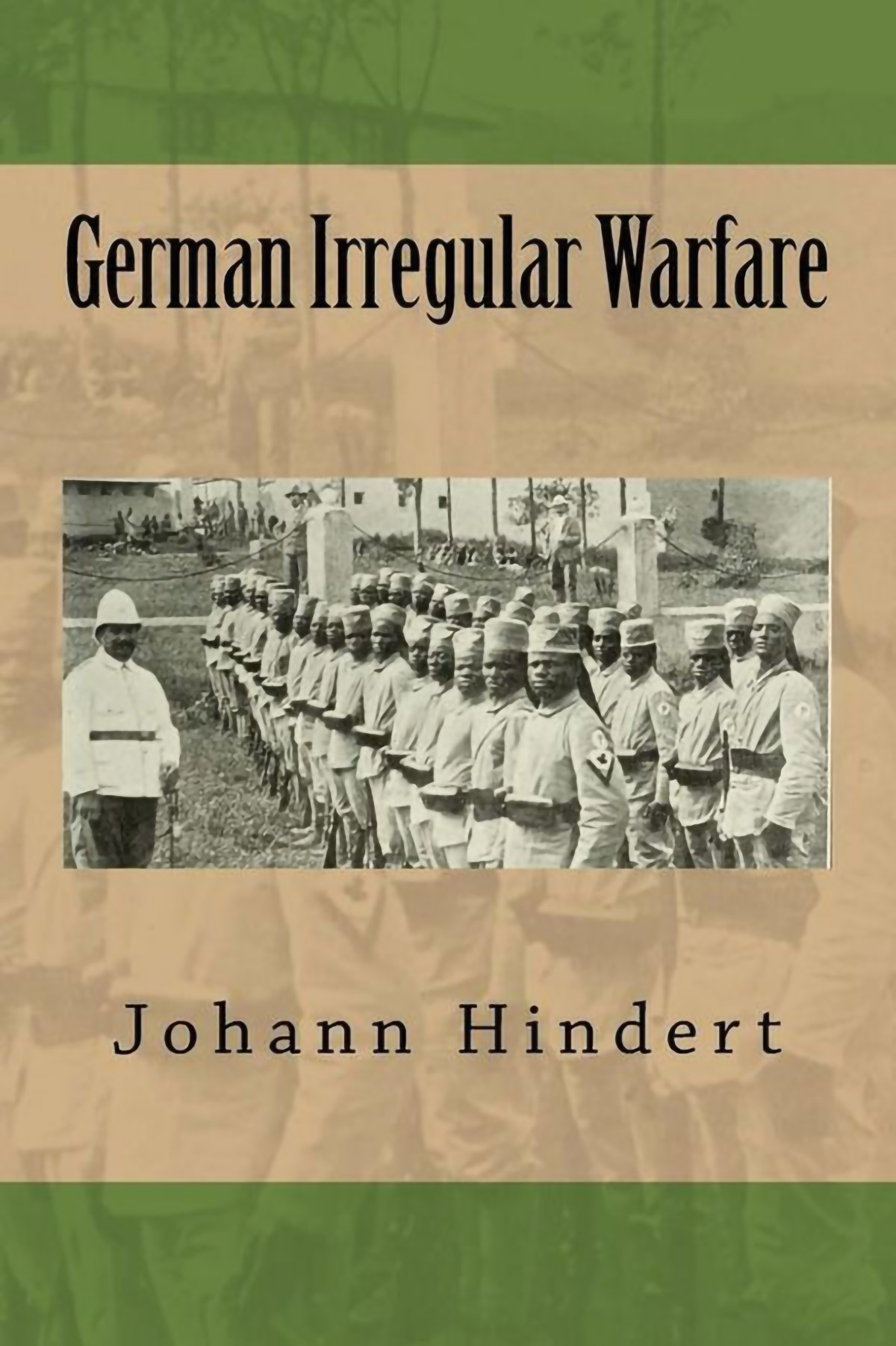Book Review
German Irregular Warfare
By Johann Hindert
CreateSpace Publishing
(June 1, 2015)
200 pages
Available in paperback

By How Miller
Johann Hindert’s book German Irregular Warfare tells you right up front what the conclusion of the book is: “German irregular warfare can offer strategic answers to contemporary security challenges.” The reasons come from both the past and the present. The sources are the writings by the participants in those conflicts, augmented by a sprinkling of pure academics. There are both tales of bold operations and lessons from “How to” manuals as well as heady analyses of the types and uses of Irregular warfare.
We start with Johann Ewald, a Hessian officer who served with the British from 1776 to 1783. He kept extensive diaries which he later used to write about the unconventional tactics used by the rebellious colonists, which they had learned while fighting against Native Americans, especially in the French and Indian wars. His observations and analyses were so thorough that a manual he wrote has remarkable similarities to that of Robert’s Rangers. Johann wrote much more and served as a foundation for later analysts.
The author mentions the ironic fact that Gen. Washington sought the help of Baron von Steuben to teach his troops European style tactics and discipline since they were, as a group, so irregular.
Carl von Clausewicz was one who undoubtedly learned much from Ewald, being the historian that he was. He saw his first combat at 12 years of age fighting for the Prussians against the French. He later met his mentor, a senior Prussian officer, while studying at the Prussian War College from 1801 – 1803. He was an intellectual during his very successful military career. He even led a multinational army unit in the Balkans.
His book On War is even quoted by civilians (eg: War is an extension of politics.). He came up with his own theories on warfare and wrote in great detail about it. One might be surprised to know that part of his Book 6 is dedicated to irregular warfare. It includes how partisans can be used in conjunction with the main force army, such as he observed in Russia when the partisans wreaked havoc on Napoleon’s rear echelon troops and the supply train, and even the retreating troops. He laid out a series of tenets such as dispersing forces, exploiting terrain, patience as a strategy, and so on.
Paul Emil von Lettow-Vorbeck served in the German Army during WWI in German East Africa, in what is now Tanzania. To his north was British East Africa (now Kenya). Within the first few weeks of the war, the British attacked Dar es Salaam and von Lettow realized his outmanned and out gunned army had a challenge ahead. He turned his Schutztruppe army of German officers and NCOs and Askari native soldiers into a roving, partisan type force and harassed the British for the entirety of the war. Instead of the British being able to draw manpower from BEA to use elsewhere, they were forced to send many additional troops and ships to try to contain them. Only when the armistice was signed did von Lettow surrender as ordered. His memoirs told more of his continually reinventing the Schutztruppe to face new realities of the conflict.
Otto Skorzeny, once dubbed “the most dangerous man in Europe”, served in WWII’s German Eastern and Western Fronts and astounding Special Missions. He led the commando raid, Operation Oak, that liberated Mussolini so that he could then command northern Italy and be a renewed strength, stubbornly resisting the Allies. This mission showed how a small group of well trained and minimally supplied men, could have a huge impact on the conflict. Skorzeny went on to write a lot about irregular warfare, including noting how the Russian partisans’ assaults on the retreating Germans was so similar to what they did to Napoleon’s men.
Freidrich von der Heydte who commanded a battalion in the massive airborne assault on Crete, wrote a theory on IW including the use of terror and using pseudo partisans and other psyops.
Col Hindert includes more sources which brings us right up to the book’s 2015 publication, including Afghanistan, Iraq and the early incursions of the Russians in Ukraine. He makes his point about German contributions to IW and offers a path to learn more from these great German sources.
About the Author:
How Miller has served as the editor of Chapter 78’s Sentinel since January 2021. Read How’s Member Profile to learn more about him.

[…] This article was first published on in May 2025 by Sentinel.https://www.specialforces78.com/book-review-german-irregular-warfare-by-johann-hindert/ […]